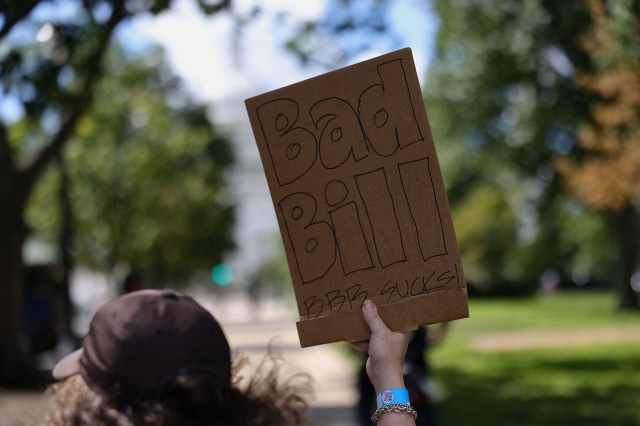Schools Rush to Save Popular Projects Amid 'Big Beautiful Bill' Threat

The Impact of Expired Federal Tax Credits on School Districts
Federal tax credits that were meant to support schools in upgrading to electric school buses, installing solar panels, and setting up electric-vehicle charging stations are now set to expire years earlier than expected. This change has created a significant financial challenge for school districts across the United States, according to reports from various media outlets.
Tanish Doshi, an 18-year-old high school student, shared his concerns with a nonprofit media outlet about the phasing out of these tax credits. He explained that this move could greatly affect investments in communities that are already struggling, undermining the concept of environmental justice.
What’s Happening?
Tucson is not alone in facing these challenges. With the help of billions of dollars in programs included in the 2022 Inflation Reduction Act, school districts nationwide had developed ambitious plans aimed at making their schools cleaner, healthier, and more cost-effective in the long run. However, the so-called "Big Beautiful Bill," which became law earlier this year, significantly reduced many of these programs. Some tax incentives, such as those for electric vehicles, were originally scheduled to last well into the 2030s but will now end much sooner, leaving districts scrambling to cover millions of dollars in shortfalls.
If these districts cannot find alternative funding sources or creatively manage their budgets, they may have to cut back or cancel these projects altogether.
California's Challenges
In California, the Los Angeles Unified School District had planned to install 21 solar projects and 13 EV charging stations across its campuses. These upgrades were essential components of the district's goal to run entirely on renewable energy by 2040. The total cost of these upgrades was expected to be $90 million, with the district relying on $25 million in federal tax credits to cover more than a quarter of the overall cost. Due to the new deadlines imposed under the "Big Beautiful Bill," the district must either find the money elsewhere or significantly scale back its plans.
Christos Chrysiliou, the chief eco-sustainability officer for LAUSD, expressed disappointment, stating, "It's nice to be able to have that funding in place to meet the goals and objectives that we have."
Why It Matters
The loss of funding threatens billions of dollars worth of projects nationwide. These initiatives aim to reduce heat-trapping pollution and improve public health. For instance, transitioning to electric school buses not only helps combat global warming but also protects the health of children and drivers.
According to the California Air Resources Board, gas-powered school buses emit significant amounts of harmful pollutants, such as carbon monoxide and particulate matter. These pollutants impact both people outside and inside the buses. In California, about one in eight children take a school bus between home and school, and even though their commutes account for less than 10% of a child's day, they contribute 33% of a child's daily exposure to some air pollutants.
Electric school buses, which do not produce tailpipe pollution while in operation, could significantly reduce children's exposure to harmful emissions. However, under the new law, districts could end up paying as much as $40,000 more per vehicle than previously anticipated.
What Are People Doing About It?
One potential positive outcome of the financial shortfalls is the possibility that the law could be changed again. Concerned residents are continuing to advocate for their elected representatives to restore federal funding for clean energy upgrades.
Meanwhile, regardless of the policies coming out of Washington, D.C., driving an EV or installing solar panels at home can save consumers money on gas and electricity costs while reducing heat-trapping pollution. With federal tax credits for EVs expiring on September 30 and tax credits for solar ending on December 31, buyers will need to act quickly to take advantage of thousands of dollars in savings.
Technological innovations may also help. The Environmental Protection Agency has suggested that some electric school buses may be able to store energy and supply it back to the grid, potentially powering municipal buildings. This could help rebalance local budgets.
Conclusion
Schools across the country are racing to save widely supported projects that are under threat due to the "Big Beautiful Bill." As Rick Brown, founder of a clean energy consultancy, stated, "At this point, everybody's holding their breath." District leaders, student advocates, and others may feel overwhelmed, but creative solutions like state-level climate funds and technological advancements could offer hope for the future.
Post a Comment